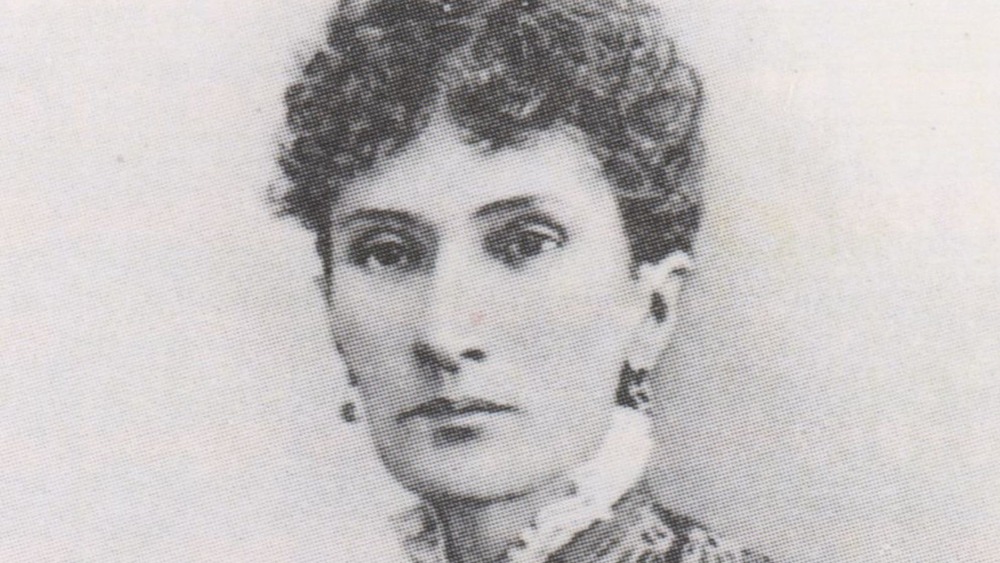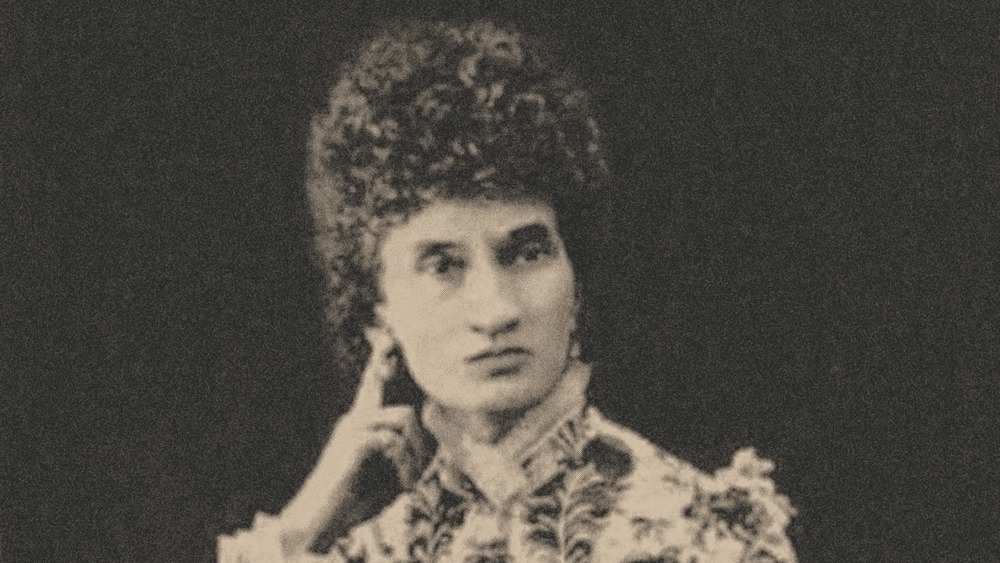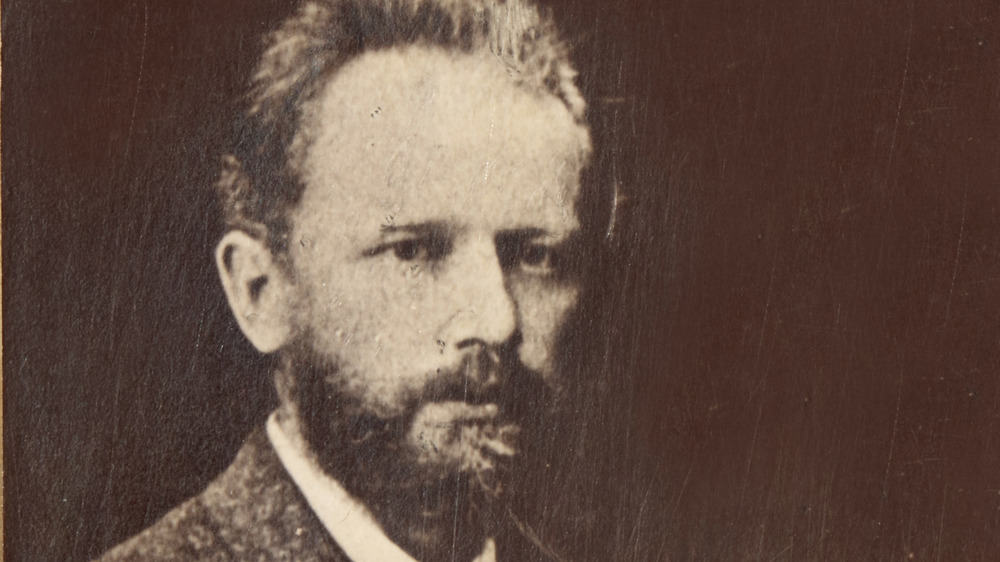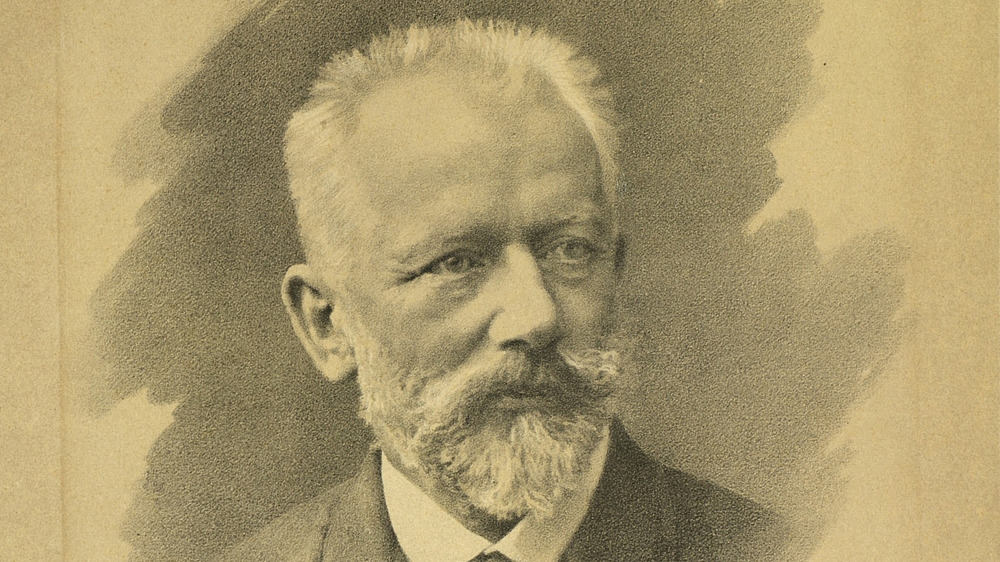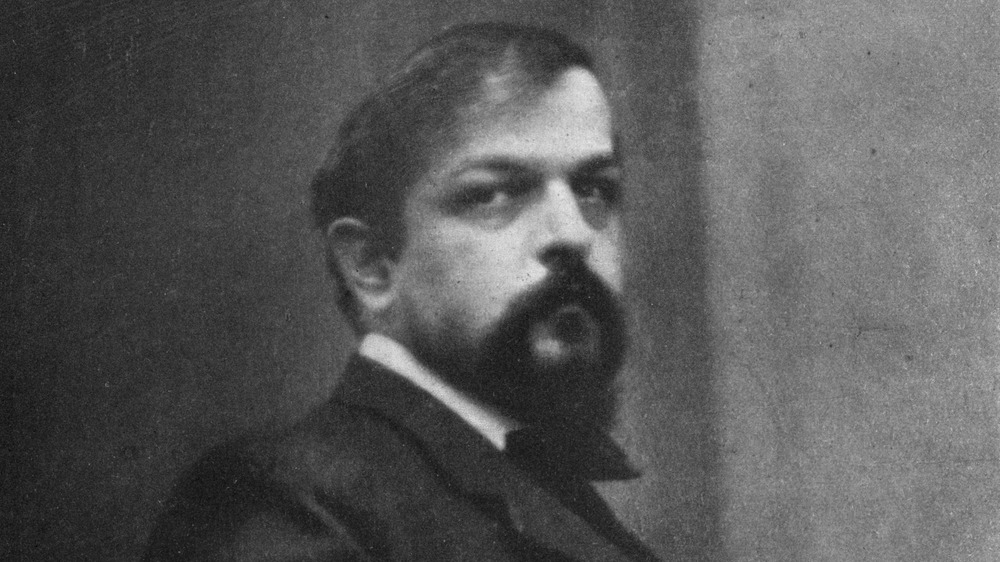The Untold Story Of The Woman Who Funded Tchaikovsky
Art is seldom an individual endeavor. Even if the final product appears to come from a single person, there are almost always multiple people involved with its eventual creation. The symphonies of Pyotr Ilyich Tchaikovsky (sometimes spelled Chaikovsky, per Britannica) are no exception to this, for without the financial support of Nadezhda von Meck (via the Gender and Music website) Tchaikovsky may never have had the chance to create his incomparable compositions.
Von Meck and Tchaikovsky corresponded via letters for 13 years, during which time she supported him emotionally as well as financially. But in the 1880s, their letters became less formal, possibly because von Meck was forced to dictate her letters due to an atrophy of her arm. Tchaikovsky lost his life less than five years after von Meck ended their relationship, and she passed soon after him. With this, they found themselves linked not only in life, but in death as well.
Without von Meck, who knows if the music of Tchaikovsky and Debussy would be recognized today? What is certain, however, is that von Meck was absolutely instrumental towards musical investigation.
The early life of Nadezhda von Meck
As Gender and Music reports, on January 29, 1831, Nadezhda Filaretovna von Meck was born into a wealthy family in Snamenskoje, Government Smolensk. Sharing her father's passion for music, von Meck also inherited her mother's business acumen. When von Meck was 17 years old, she married Karl Fyodorovich von Meck. Karl made a fortune in the railway industry, says the BBC, but according to California Symphony, Karl died in 1876, leaving a 45-year-old von Meck with 11 children and substantial wealth.
Von Meck "became almost a recluse," rarely going out and even refusing to attend her own childrens' weddings. But her passion for music kept her connected to the world. During her husband's life, the couple had frequently supported and employed young musicians. Von Meck continued this after Karl's death and started "sponsoring musicians and composers."
On the rare occasion she left her house, von Meck attended concerts, although only those performed by the Russian Musical Society, says Australian Broadcasting Corporation Classic, and she would isolate herself from the rest of the audience.
Supporting Tchaikovsky
One of the pieces that caught von Meck's attention was a poem for orchestra (at the International Music Score Library Project) inspired by Shakespeare's The Tempest, composed by Pyotr Ilyich Tchaikovsky. Von Meck wrote to the 36-year-old Tchaikovsky less than a year after her husband's death, at first commissioning some music from him, and then finally offering him "an annual allowance of 6,000 roubles, roughly 15-20 times the salary of a typical civil servant at the time." According to California Symphony, with such an amount, Tchaikovsky was able to quit all his other jobs and focus his attention on composing full-time.
Von Meck's patronage came with a curious stipulation. She and Tchaikovsky were never to meet. Instead, over the next 13 years, the two exchanged over 1,000 letters, although only half are believed to survive. Tchaikovsky had also been told to destroy the correspondence, but he never did.
They did bump into each other, though it was entirely by accident, says ABC Classic, and when Tchaikovsky tipped his hat at her, von Meck "looked confused." Tchaikovsky was apologetic in his next letter, and although von Meck didn't seem too bothered, their physical paths never crossed again.
The relationship with Tchaikovsky ends
It's unclear exactly why von Meck ended her relationship with Tchaikovsky. In October 1890, she wrote to him stating that she was facing bankruptcy and that she was sending him a final year's salary. According to ABC Classic, von Meck claimed that her children had spent her entire fortune. Her children had always disapproved of von Meck's relationship with Tchaikovsky, however, and it's likely that they'd forced her to end the relationship in order to keep the family fortune to themselves.
Tchaikovsky was forever grateful to von Meck, dedicating his Symphony No. 4 (1877) to her. Unfortunately, according to California Symphony, no one knows for certain if von Meck ever received Tchaikovsky's final letter. In it, he wrote that "without any exaggeration I can say that I have never forgotten you and never will forget you for even a single minute."
Three years later, Tchaikovsky died, and von Meck followed three months later. According to a family member, von Meck was unable to "endure" Tchaikovsky's death.
A patron of the arts
Tchaikovsky wasn't the only artist whom von Meck financially supported. Nikolai Rubinstein (per Gender in Music), Josef Kotek (via ABC Classic), and Henryk Wieniawski were also among the musicians she supported. It was Kotek who connected von Meck with Tchaikovsky, since Kotek had been a former pupil of his.
For a time, von Meck also employed Claude Debussy (pictured above) as a musician and piano teacher for her family. According to the BBC, von Meck's love of musicians extended to wanting them to be a part of the family, and she even tried to push a daughter onto Debussy.
But ultimately, von Meck's impact on Tchaikovsky was the greatest. Around the time von Meck contacted Tchaikovsky, he was at one of the lowest points in his life, teaching at the Moscow Conservatory and about to enter a messy divorce. Without von Meck's financial and emotional support, Tchaikovsky might never have composed the masterpieces associated with him today.
